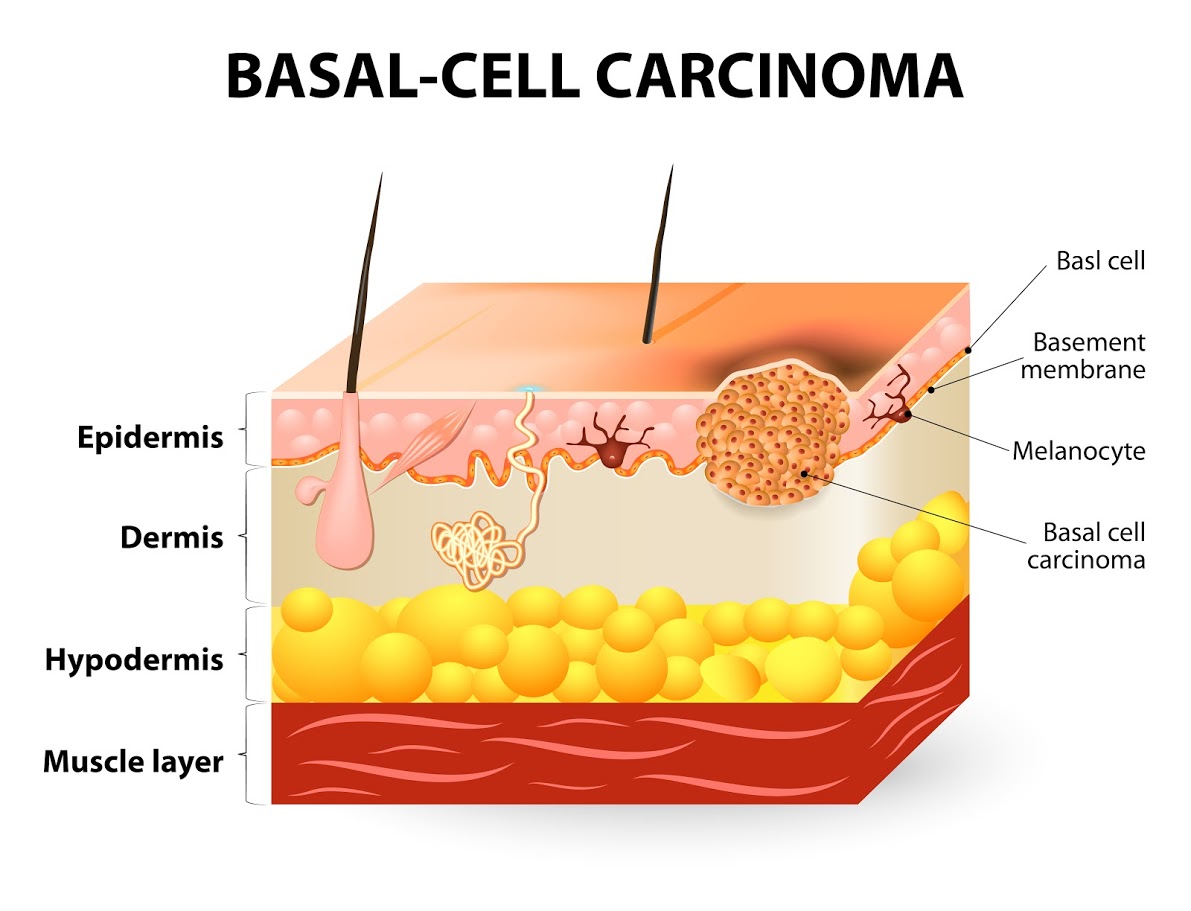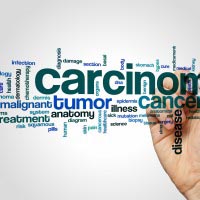
Basal cell carcinomas are caused by long-term sun damage. This means that anything that increases your exposure to the sun or that makes your skin more sensitive to sun damage will increase your chances of needing Basal Cell Carcinoma treatment. The same risk factors can affect your chances of developing other non-melanoma skin cancers and melanoma too.
What is Basal Cell Cancer?
Basal cell carcinoma (BCC) is a form of non-melanoma skin cancer that affects the outer layer of your skin, often in a place that has been frequently exposed to the sun. A BCC is much less likely to spread than a melanoma, but the tumour will usually still need to be removed, just in case. There is still a very small chance that a non-melanoma skin cancer will spread and the BCC could be very disfiguring if it is left to grow. Basal cell carcinoma treatment is usually very successful, but the method used will depend on the size and location of the tumour, as well as your health.
Risk Factors for BCC
If you have fair skin that burns easily, you are more susceptible to sun damage, which means that you are at higher risk of BCCs. Other signs that you might be at higher risk include having freckles and blonde or red hair, as these traits tend to be linked with sensitivity to the sun. The amount of exposure you have to damaging UV light will also affect your risk of developing skin cancer. If you spend a lot of time working or exercising outdoors, or in a sunnier climate than the UK, it can increase the risk. However, none of these factors means that you will definitely develop a BCC or another skin cancer. It just means that you need to be more careful in the sun. Try to stay out of the sun when it is at its strongest, between about 11am and 3pm in summer, and make sure you use sun cream.
Are BCCs hereditary?
Basal cell carcinomas aren’t usually hereditary, so if someone in your family has had Basal Cell Carcinoma treatment it doesn’t mean that you are more likely to develop one too. There is a condition called Gorlin’s syndrome that does cause hereditary BCCs, but this is very rare. However, what you can inherit from your parents are the risk factors that increase your sensitivity to the sun. If you have the same pale skin and freckles as your parents, this does mean that you need to be particularly careful about protecting your skin from the sun.



